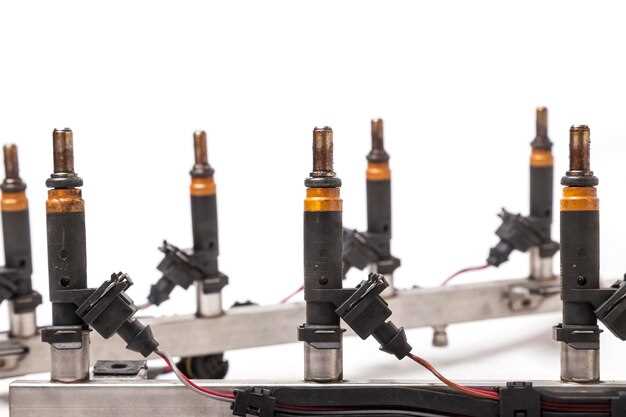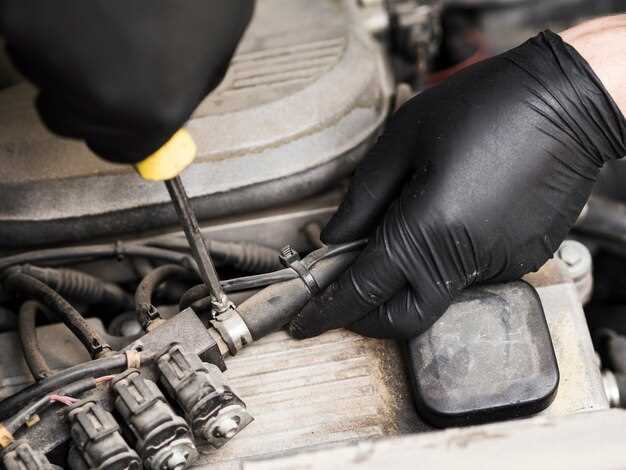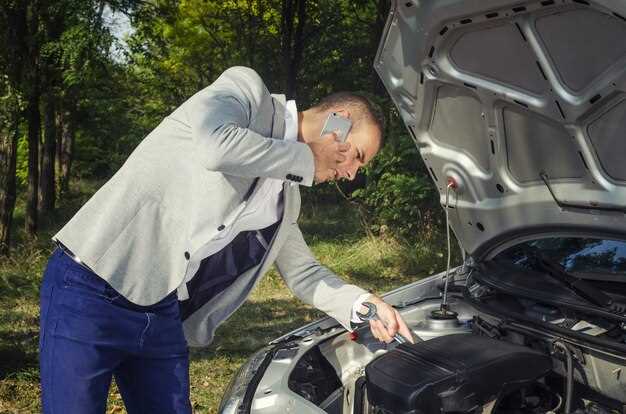
Diesel engines are renowned for their durability and efficiency, often found in heavy-duty applications. However, one critical component that can greatly affect their performance is the injector. These devices play a vital role in delivering the precise amount of fuel into the combustion chamber, ensuring optimal engine operation. When injectors develop an issue, it can lead to serious ramifications for both the engine’s performance and its lifespan.
Recognizing the signs of injector failure early can save diesel engine owners from costly repairs and prolonged downtime. Common indicators of injector issues include irregular engine performance, increased fuel consumption, and the presence of excessive smoke from the exhaust. By understanding these symptoms, operators can take proactive measures to address injector problems before they escalate into more significant failures.
In this article, we will delve into the various signs of injector failure in diesel engines, providing insights into identifying these issues and understanding their implications. Armed with this knowledge, diesel engine operators can maintain peak performance and ensure the longevity of their vehicles.
Examining Symptoms of Fuel Injector Malfunction

Fuel injectors play a critical role in the performance of diesel engines. When issues arise with these components, it can lead to a variety of symptoms that indicate a malfunction. Recognizing these signs early can prevent further damage to the engine and ensure optimal performance.
One prominent symptom of fuel injector failure is a noticeable decrease in engine power. If a diesel engine is not receiving the appropriate amount of fuel due to a malfunctioning injector, it may struggle to accelerate and maintain speed, indicating an underlying issue that needs attention.
Another common sign is rough idling. A diesel engine may produce uneven vibrations or sounds during idle if one or more injectors are not functioning properly. This occurs when the fuel delivery is inconsistent, causing the engine’s combustion process to be unstable.
Increased exhaust smoke is also a clear indicator of injector malfunction. If fuel injectors are leaking or providing an excessive amount of fuel, the engine may emit black smoke. This occurs as unburned fuel exits the combustion chamber, signaling a need for assessment and potential repair of the injectors.
Additionally, poor fuel economy can be a result of deteriorating fuel injectors. When injectors fail to atomize fuel correctly, it leads to incomplete combustion and increased fuel consumption. If a vehicle experiences a sudden drop in miles per gallon, it is essential to investigate the injectors as a potential cause.
Finally, engine misfires can indicate a problem with the fuel injection system. If an injector is clogged or damaged, it can lead to inconsistent fuel delivery, resulting in misfires that affect overall engine operation. This symptom should not be ignored, as it can lead to more significant engine issues if left unresolved.
Diagnosing Injector Problems Using Engine Performance Metrics
The performance of a diesel engine is heavily influenced by the state of its fuel injectors. One of the primary indicators of injector issues is the engine’s responsiveness. A sluggish reaction to throttle input can suggest that the injectors are not delivering the correct amount of fuel, leading to incomplete combustion and poor acceleration.
Another critical metric is fuel efficiency. If there is a noticeable drop in miles per gallon (MPG), it may indicate an injector issue. Faulty injectors may leak fuel or fail to atomize it properly, resulting in excessive fuel consumption. Monitoring fuel pressure can also help in diagnosing injector problems. Abnormal pressure readings often point to issues such as clogged filters or malfunctioning injectors.
Additionally, monitoring exhaust emissions can yield valuable insights into injector health. Increased levels of black smoke can indicate an overly rich fuel mixture, often a result of injectors that are stuck open or not functioning correctly. Conversely, a significant increase in nitrogen oxides (NOx) emissions may suggest that injectors are not delivering enough fuel during combustion, leading to incomplete combustion and elevated temperatures.
Engine knock or misfires are further symptoms that can be tied to injector failure. These issues arise from uneven fuel distribution within the combustion chamber, indicating that at least one injector may be malfunctioning or clogged. Regular analysis of these performance metrics can allow for early detection of injector problems, ultimately preventing more extensive engine damage.
Practical Steps for Troubleshooting and Repairing Diesel Injectors

When dealing with diesel engines, it’s crucial to maintain optimal performance, and that includes ensuring the efficiency of the injectors. If you suspect injector issues, follow these practical steps for troubleshooting and repairing diesel injectors.
1. Visual Inspection: Begin with a thorough visual inspection of the injectors. Look for signs of fuel leaks, corrosion, or physical damage. Check the connections and wiring for any visible wear that may cause electrical issues.
2. Listen for Unusual Noises: Start the engine and listen carefully. If you hear knocking or excessive noise coming from the injectors, it may indicate a malfunction. A properly functioning injector should operate quietly.
3. Test Fuel Delivery: Use a pressure gauge to measure the fuel delivery to the injectors. Ensure the fuel supply is adequate, as low fuel pressure may lead to poor injector performance. If pressure is low, check the fuel pump and filters for blockages.
4. Injector Flow Testing: Remove the injectors and perform a flow test to evaluate their output. This can be done using specialized equipment that measures the amount of fuel each injector delivers over a specific time period. Compare the results to the manufacturer’s specifications.
5. Clean Injectors: If the injectors are dirty, consider cleaning them using ultrasonic cleaning methods or dedicated fuel injector cleaning solutions. This process can help restore proper fuel spray patterns and improve overall efficiency.
6. Electrical Testing: Check the electrical connectors and harnesses for continuity and resistance. Use a multimeter to measure the injector’s resistance; if it falls outside the normal range, replacement may be necessary.
7. Replace Faulty Injectors: If any injectors fail during testing, replace them with high-quality replacements that meet the engine specifications. Proper installation is key; ensure all seals and O-rings are intact to prevent fuel leaks.
8. Final System Check: After repairs, conduct a final system check. Start the engine and monitor its performance, paying close attention to engine vibration, noise levels, and exhaust emissions. Confirm that the diesel injectors are functioning correctly.
By following these steps, you can effectively troubleshoot and repair diesel injectors, ensuring that your engine runs smoothly and efficiently.




